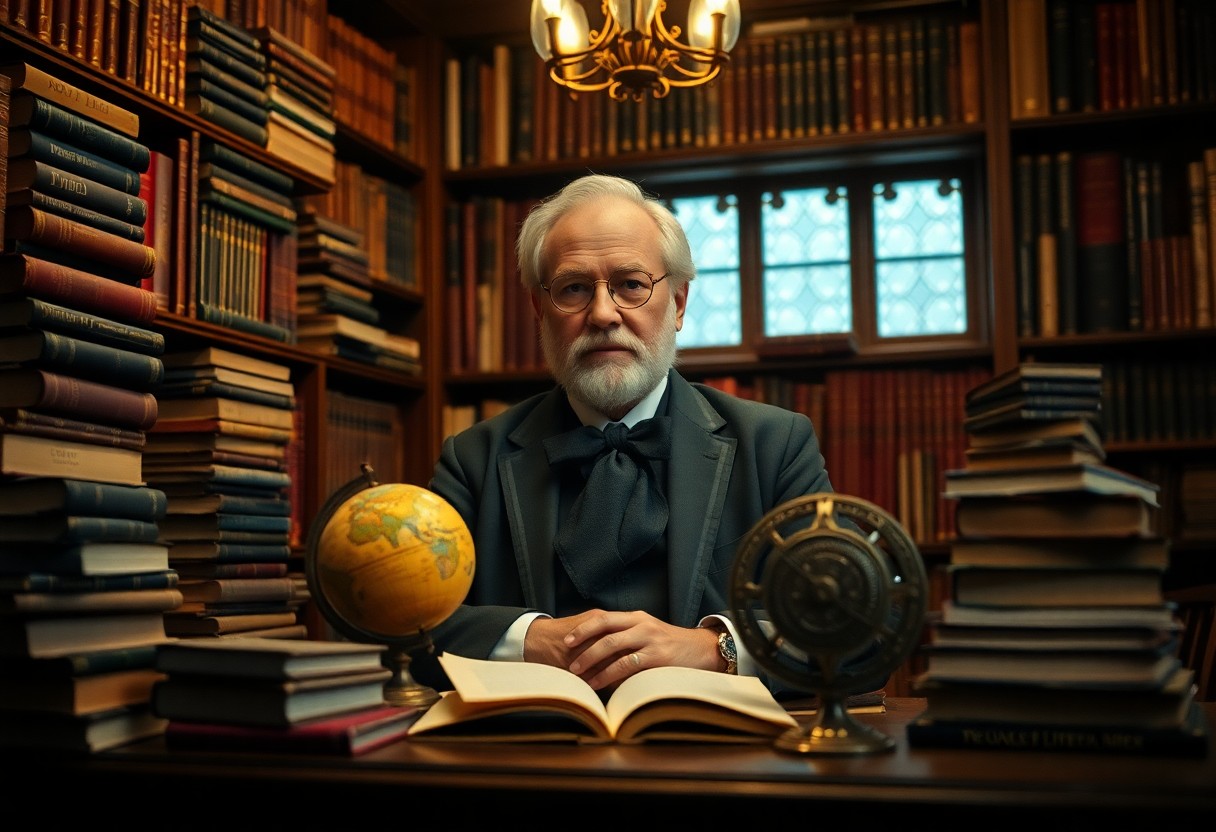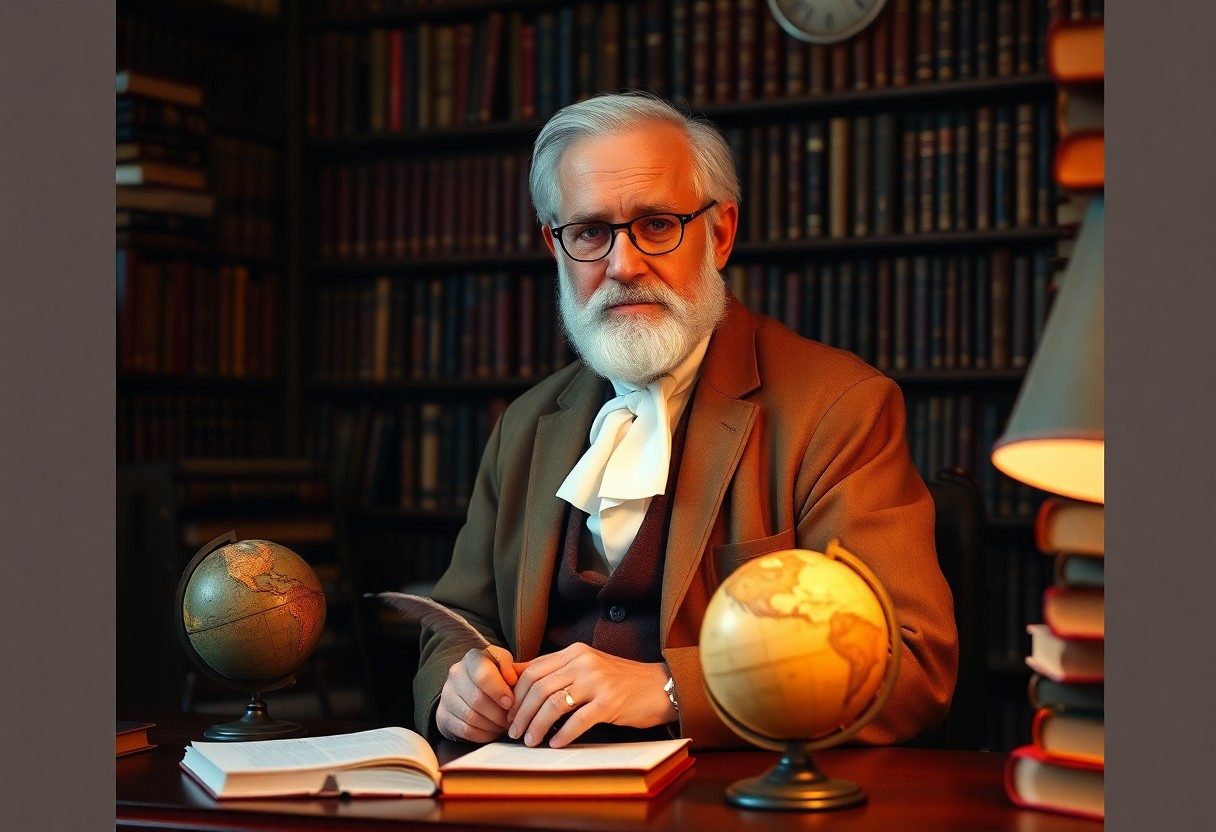Over the past few years, the Master of English Literatures (MEL) has emerged as a prestigious academic program designed for those seeking to deepen their understanding of literary theory, analysis, and history. This advanced degree equips you with critical reading, writing, and analytical skills, which are vital in a variety of career paths. Whether you aspire to become a writer, educator, or scholar, pursuing a MEL can significantly enrich your intellectual journey and professional opportunities. In this post, you will explore the key components, benefits, and potential career pathways associated with earning a MEL.

Key Takeaways:
- Master of English Literatures (MEL) program enhances critical thinking and analytical skills through in-depth study of a wide range of literary texts.
- Students benefit from diverse coursework, including literary theory, historical contexts, and various genres, promoting a comprehensive understanding of literature.
- Graduates are well-prepared for careers in education, publishing, writing, and other fields that value strong communication and analytical abilities.

The Evolution of English Literature as a Discipline
The progression of English literature as a distinct academic pursuit showcases a dynamic interplay of cultural, social, and historical factors that have shaped its study. By tracking the discipline’s trajectory from its early roots in medieval texts to contemporary works, you can appreciate how various movements, historical events, and key authors have influenced literary form and content. The curriculum of the MEL program reflects this evolution, encouraging you to explore significant literary periods and attract attention to the diverse voices that contribute to the ever-expanding canon of English literature.
Historical Milestones and Their Impact on MEL
Throughout history, several milestones have profoundly impacted the study of English literature, directly influencing the MEL program’s curriculum. The Renaissance ushered in a renewed interest in classical texts, paving the way for literary exploration, while the Romantic and Victorian eras expanded thematic depth and complexity in literature. The emergence of literary movements like Modernism and Postmodernism even further diversified interpretations and methods of textual analysis, emphasizing the relevance of various perspectives in your studies.
The Shift in Literary Criticism and Theory
The realm of literary criticism has shifted dramatically, reshaping the frameworks through which you engage with texts in the MEL program.
Tracing the evolution of literary criticism reveals the transition from formalism and New Criticism, which focused on close readings, to the broader implications of contextual approaches such as Marxism, feminism, and post-colonialism. This shift enhances your analytical capabilities by encouraging engagement with the influence of social, political, and psychological contexts on literature. The rise of critical theory critiques the notion of a singular interpretation and promotes a multiplicity of meanings, fostering a rich, dynamic environment for discussion and discovery within the MEL curriculum. As you research deeper into these theories, you’ll uncover diverse perspectives that enrich your understanding of literary texts and their place within society.
Navigating the Curriculum: Core Components of a MEL Program
Your journey in a Master of English Literatures (MEL) program involves a carefully designed curriculum that ensures a comprehensive understanding of literature through various lenses. Core components often focus on the evolution of literary movements, the interplay of literature and culture, and the critical examination of texts from diverse historical perspectives. Engaging with these foundational elements equips you with the knowledge needed to analyze and interpret complex literary works, enhancing your overall acumen in the field.
Key Courses and Thematic Focus Areas
In a MEL program, you will encounter a wide array of courses that research deep into thematic focus areas such as post-colonial literature, gender studies, and American literature. These key courses are specifically chosen to challenge your interpretative skills and foster a nuanced understanding of the social, cultural, and ethical implications of literary texts. As you engage with literature from various epochs and diverse backgrounds, you will cultivate a rich intellectual space for both personal and academic growth.
Specializations: Creative Writing, Critical Theory, and More
Specialization options within a MEL program allow you to tailor your academic experience according to your interests, with pathways including Creative Writing, Critical Theory, and Cultural Studies. Each specialization offers unique perspectives that enhance your ability to create and critique, encouraging you to explore literature not only as an art form but also as a means of understanding society and self.
In the Creative Writing specialization, you’ll hone your craft through workshops and peer critiques, enhancing your narrative skills while receiving constructive feedback from experienced faculty and fellow students. Critical Theory courses expose you to the philosophical underpinnings of literary texts, equipping you with theoretical tools to dissect the meaning of works on a deeper level. Meanwhile, Cultural Studies will explore the connection between literature and the larger socio-political landscape, fostering a holistic appreciation of text within context. Tailoring your studies in these areas can profoundly impact your career trajectory, whether you aim to become a novelist, literary critic, or educator.
Skills Cultivation: What MEL Programs Aim to Develop
MEL programs are designed to enhance various important skills that not only bolster your academic capabilities but also prepare you for diverse career paths. By focusing on analytical thinking, critical reading, and advanced research methodologies, you become equipped to interpret complex texts and articulate your insights effectively. Through rigorous coursework and collaborative projects, you refine your abilities in both interpretation and communication, ultimately empowering you to navigate the complexities of English literature with confidence.
Analytical Thinking and Critical Reading Skills
In MEL programs, you engage with an array of literary works, fostering your analytical thinking and critical reading skills. You learn to dissect texts, identifying themes, structures, and underlying meanings. This involves scrutinizing language, context, and author intent, allowing you to formulate well-informed interpretations. Such analytical rigor not only enhances your understanding of literature but also sharpens your ability to engage in thoughtful discussions.
Research Methodologies and Academic Writing Proficiency
Your research methodologies and academic writing proficiency receive substantial attention in MEL programs. You explore various research techniques, learning to gather, evaluate, and synthesize information from diverse sources. This hands-on approach helps you craft coherent and compelling arguments while adhering to academic standards. The emphasis on writing prepares you for effective communication not just in academia, but in any future professional endeavors.
Mastering research methodologies involves practical exposure to qualitative and quantitative methods, alongside critical analysis of existing literature. You might tackle complex topics by employing literary theory, comparative studies, or even digital humanities techniques. Engaging with academic writing through iterative drafts fosters clarity, structure, and originality in your work. As you collaborate with peers and receive feedback, your writing evolves, enhancing your ability to present nuanced arguments and insights. This combination of research and writing skills forms a solid foundation for both your academic and professional future, equipping you to navigate the rigorous demands of literary studies and beyond.
Career Pathways: Leveraging Your MEL for Professional Success
Diverse Fields: Academia, Publishing, and Beyond
Your MEL opens doors to diverse fields, enabling a career in academia, publishing, journalism, or marketing. In academia, you can pursue teaching roles at universities, shaping future minds while engaging in research. The publishing sector allows you to work as an editor or literary agent, nurturing the next wave of authors. Alternatively, skills gained from your MEL can be applied in marketing roles where strong communication and critical analysis enhance brand narratives. Each path paves the way for professional growth, allowing you to make significant impacts in various industries.
Networking and Building a Professional Portfolio
Building a solid professional network is important to harness the full potential of your MEL. Engaging with professors, attending workshops, and joining literary associations can connect you with industry leaders. Your portfolio should showcase your best work, from research papers to creative projects, demonstrating your diverse skills. Sharing your writing on academic platforms or personal blogs not only establishes your expertise but also attracts potential employers. Actively participating in relevant communities amplifies your visibility and opens new collaboration opportunities, enhancing your professional journey.
Expanding your professional network goes beyond mere attendance at events; it’s about cultivating meaningful relationships. Collaborate on projects, engage in discussions, and contribute your insights to relevant forums. Consider volunteering for local literary festivals or author readings to gain exposure. Such experiences not only enrich your portfolio but also place you at the forefront of the literary community. By authentically sharing your journey and expertise through social media channels like LinkedIn or Twitter, you effectively position yourself as a thought leader, making you a preferred candidate in job searches and professional opportunities. For more on this dynamic landscape, explore the Graduate Program in English – Loyola Marymount University.
Perspectives from MEL Alumni: Insights and Experiences
Engaging with MEL alumni reveals a rich tapestry of experiences that highlight the program’s transformative impact on their careers. Many graduates share that the curriculum’s focus on critical theory and diverse literary traditions not only deepened their appreciation for literature but also enhanced their ability to think critically and communicate effectively. Networking with professors and peers has forged connections that extend beyond academics, often leading to collaborative projects and insights into various publishing or teaching opportunities. Alumni articulate a profound sense of belonging and intellectual challenge that continues to shape their professional and personal lives.
Success Stories and Unique Career Paths
The success stories from MEL alumni underscore the program’s diverse applications in various fields. Graduates have ventured into publishing, education, and even creative writing, often taking on roles as editors, authors, and educators. One MEL alum, who now teaches literature at a prestigious university, attributes their success to the critical frameworks learned during the program, which allowed them to foster deep discussions and critical thought among their students. Others have found unique niches as literary agents or consultants, combining their love for literature with business acumen.
Challenges Faced and Overcoming Obstacles
Many MEL alumni face challenges during and after their studies that shape their resilience and adaptability. Balancing academic rigor with personal commitments often tests their time management skills, requiring strategic planning and discipline. Additionally, the competitive nature of literary fields can be daunting, but many alumni emphasize that seeking mentorship and building a supportive network helped them navigate these complexities.
The journey through the MEL program isn’t without its hurdles. For instance, managing overwhelming course loads while simultaneously engaging in internships or teaching assistant positions creates a unique set of challenges. Some alumni reported grappling with feelings of imposter syndrome in a competitive academic environment. However, taking advantage of university resources, workshops, and mentorship connections addressed these issues. Many found that actively participating in discussions and collaborative projects increased their confidence and professional connections, ultimately paving the way for successful career transitions. This proactive approach not only overcame obstacles but also enriched their academic experiences, providing tools they continue to use in their careers today.
To wrap up
Presently, pursuing a Master of English Literatures (MEL) can significantly enhance your understanding and appreciation of literary texts, theories, and cultural contexts. This advanced degree allows you to explore deeply into various literary movements, expand your analytical skills, and refine your critical thinking. You will engage with diverse works, fostering a greater appreciation for the artistry and impact of literature in society. Ultimately, the MEL program equips you with the tools necessary for a successful career in education, writing, or research, while also enriching your personal literary journey.

